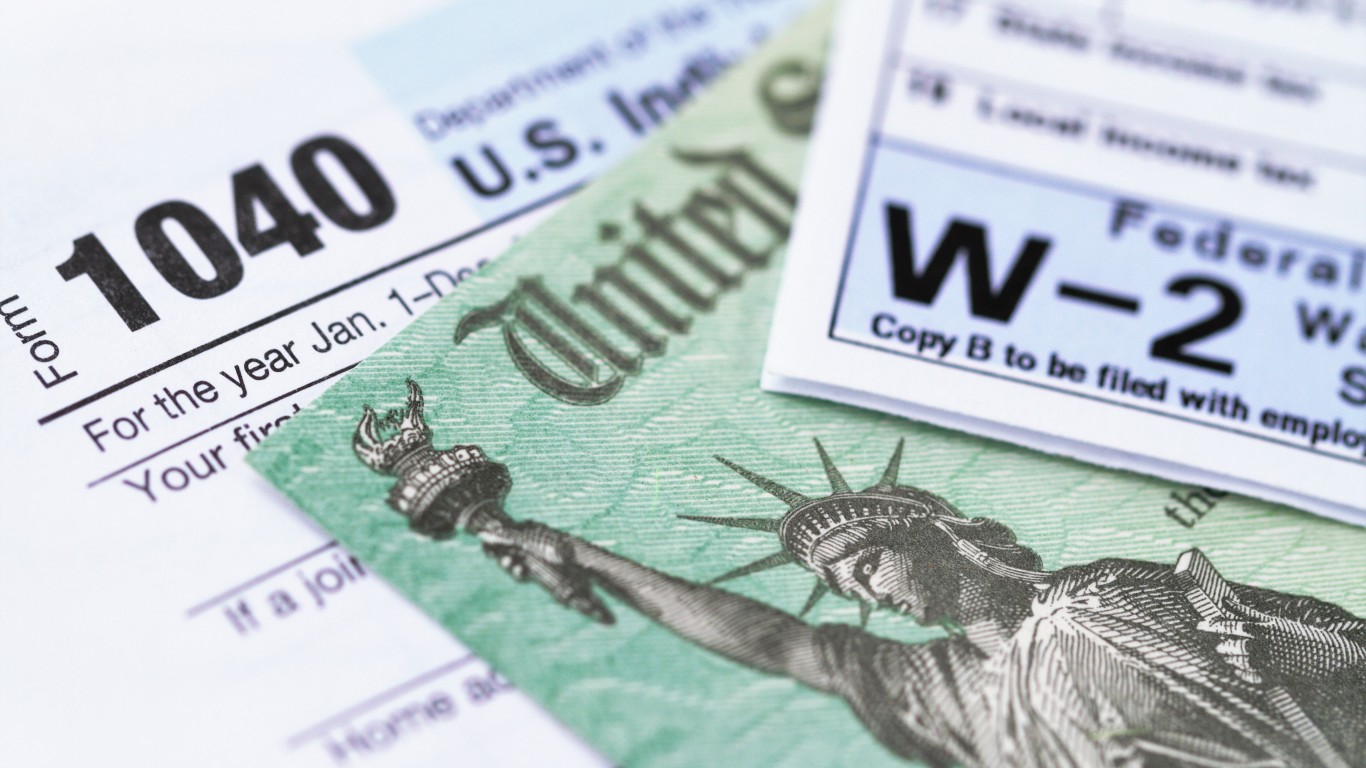
Stimulus checks helped millions of Americans meet their financial needs over the past two years. Expectations for the coming year are that there will be a lower cash outflow for taxpayers in tax refunds. The IRS recently warned taxpayers that their tax refunds in 2023 could be smaller than this year’s payment.
Why Tax Refunds In 2023 Could Be Smaller
In general, tax refunds are available when taxpayers overpaid their taxes or withheld more than the amount they owe. This year many taxpayers received hefty refunds because, along with the tax refund, they also got the stimulus check and the child tax credit.
In 2023, however, tax refunds could be smaller than in 2022. This is because there were no federal stimulus checks issued in 2022 and most taxpayers already claimed their federal payments.
“Refunds may be smaller in 2023,” the IRS said in a November press release. “Taxpayers will not receive an additional stimulus payment with a 2023 tax refund because there were no economic impact payments for 2022.”
According to the IRS, the average refund for the 2022 filing season was $3,176 (as of October 28), compared to $2,791 in 2021.
Another reason tax refunds in 2023 could be smaller is that it will be harder to claim a deduction for charitable gifts on the 2022 return. Following the COVID-19 pandemic, Congress offered charities a tax incentive for cash gifts in 2020.
Lawmakers extended the same benefit for 2021 as well. However, the tax break wasn’t extended for 2022. It means that benefits for charitable gifts are no longer available to taxpayers if they are taking the standard deduction.
In 2021, the IRS allowed individuals to deduct $300 per person, or up to $600 per family, in charitable gifts if they didn’t itemize other deductions. Now, this benefit isn’t available anymore.
Should Taxpayers Be Concerned?
Smaller refunds could concern some taxpayers. A survey from LendingTree found that 46% of taxpayers in 2022 were relying on their refund to make a large purchase, save or investment it, or pay down debt.
Tax experts, however, say that people shouldn’t worry about smaller tax refunds in 2023 because they can still avail themselves of many other types of tax benefits, credits, and deductions that could help them to minimize their taxes, and in turn, get hefty refunds.
Separately, the IRS warned taxpayers that they should not expect to receive a 2022 tax refund “by a certain date.” Some filings could require “additional review,” and this could delay the process.
Usually, taxpayers who filed their returns electronically could expect a faster refund via direct deposit. However, if there are any issues or mistakes with the return, then the refund could be delayed.
According to the IRS, they had around 3.4 million unprocessed individual returns received in 2022 as of November 18. Of these, 1.7 million require error correction and the remaining are paper filings.
This article originally appeared on ValueWalk
The Average American Has No Idea How Much Money You Can Make Today (Sponsor)
The last few years made people forget how much banks and CD’s can pay. Meanwhile, interest rates have spiked and many can afford to pay you much more, but most are keeping yields low and hoping you won’t notice.
But there is good news. To win qualified customers, some accounts are paying almost 10x the national average! That’s an incredible way to keep your money safe and earn more at the same time. Our top pick for high yield savings accounts includes other benefits as well. You can earn up to 3.80% with a Checking & Savings Account today Sign up and get up to $300 with direct deposit. No account fees. FDIC Insured.
Click here to see how much more you could be earning on your savings today. It takes just a few minutes to open an account to make your money work for you.
Our top pick for high yield savings accounts includes other benefits as well. You can earn up to 4.00% with a Checking & Savings Account from Sofi. Sign up and get up to $300 with direct deposit. No account fees. FDIC Insured.
Thank you for reading! Have some feedback for us?
Contact the 24/7 Wall St. editorial team.


